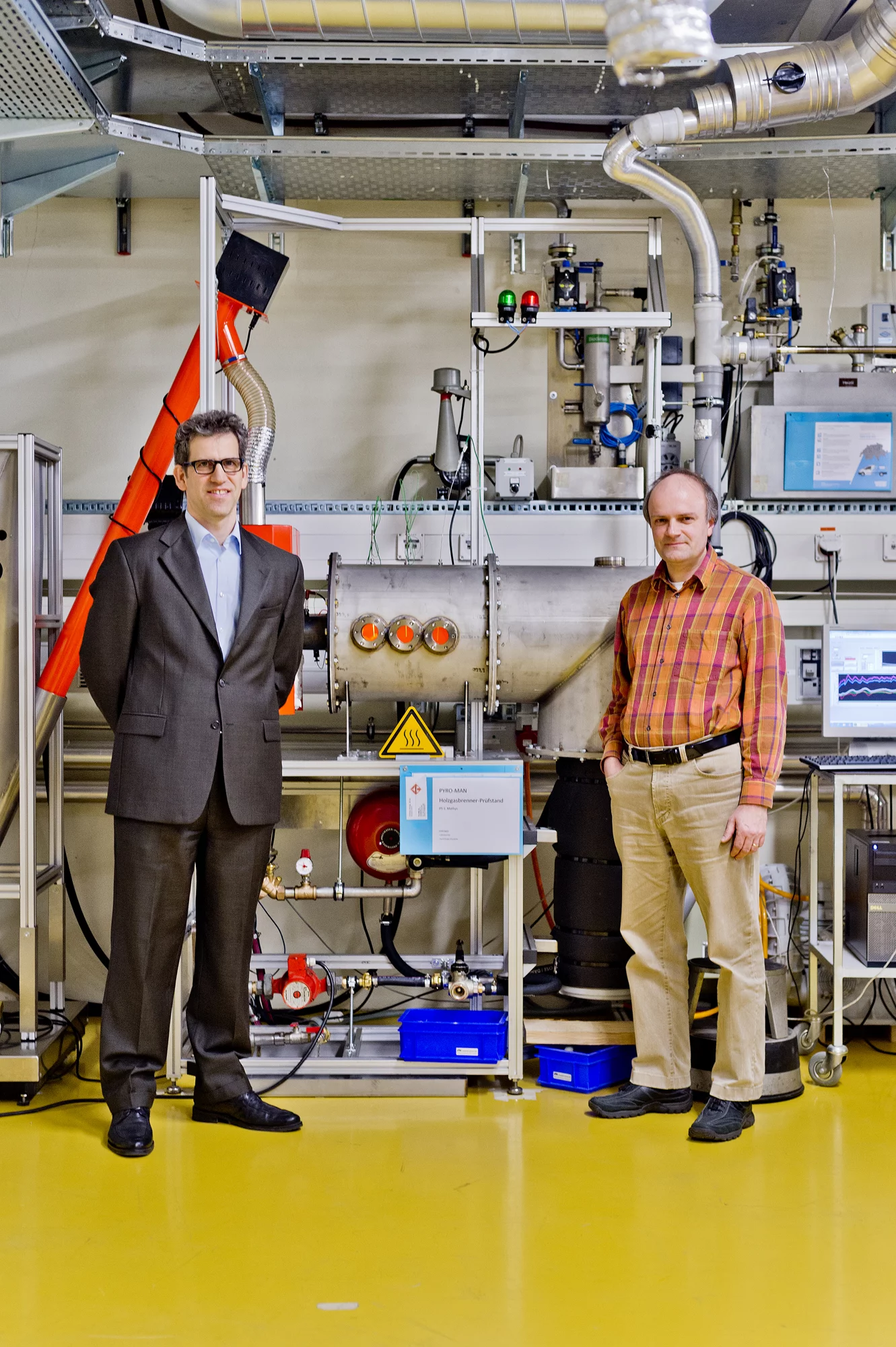The Institute of Biomass and Resource Efficiency (IBRE) was founded by the two institutions, the Paul Scherrer Institute (PSI) and the University of Applied Sciences Northwestern Switzerland FHNW, at the start of 2013. The aim of this new institute is to tackle the issue of resource efficiency throughout Switzerland, concentrating simultaneously on energy and materials for the first time, and to thus make a fundamental contribution to the Federal Government’s “Energy Strategy 2050”. The focus is on the sustainable use of biomass. Prof. Dr. Timothy Griffin has been appointed the new head of the institute.
The Institute of Biomass and Resource Efficiency (IBRE) will be supported by both the FHNW and the PSI. The objective of the new institute is to collaborate with industry partners and universities to develop new technologies for using biomass and to make these marketable, focussing in particular on the following areas:
Sustainable use of biomass with great potential
One of the focal points of the research is the production of biomethane (a CO2-neutral natural gas) from organic residues such as algae, sewage sludge or other organic waste. In addition, the aim is to obtain valuable liquid fuels and chemicals from organic waste, lignin and energy crops which do not compete with the production of foodstuffs, as is the case with the cultivation of soya or rapeseed.
Direct thermochemical conversion of biomass
Another focal point is the development of clean and efficient technologies for optimising biomass firing systems. This includes the investigation of the formation of fine dust (development of appropriate measurement techniques, use of particle separators) as well as the development of new power and heat generation technology using wood or other biomass as the fuel.
Cleaner production is increasing competitiveness
Cleaner production is gaining in importance in terms of companies’ competitiveness on the global market. The institute wishes to support its industry partners in the field of resource efficiency and develop preventative measures to reduce both pollution and production costs.
Interdisciplinary cooperation
The IBRE is adopting an interdisciplinary approach: process, energy and environmental engineers work together in project teams and, in doing so, consider both the energy and material aspects of process optimisation. Thanks to the involvement of both the supporting organisations, the institute is able to handle innovative project ideas from basic research up to the launch of marketable products and processes. The FHNW is assuming the role of transfer partner in applied research and development and is establishing contacts with project funding institutions (federal agencies, Commission for Technology and Innovation (CTI)), as part of the development of technologies for companies.
Contribution to the education of engineers in the energy sector
The IBRE is also involved in educating the engineers of the future, who are currently studying energy engineering, environmental technology and mechanical engineering. It is providing them with skills in the field of process engineering, thermodynamics, material energy flow analyses as well as renewable energies and storage technologies.
Supporting the Federal Government’s energy strategy
Prof. Dr. Timothy Griffin, the head of the new institute, is convinced that the IBRE will make a significant contribution to the implementation of the Federal Government‘s “Energy Strategy 2050”: “The institute’s activities are concerned with the sustainable development of our society: we are able to support our partners, both by developing technologies and increasing resource efficiency, within the framework of projects which are based on both basic principles and applications. The two supporting organisations therefore complement one another perfectly!”
Text: FHNW
About PSI
The Paul Scherrer Institute develops, builds and operates large, complex research facilities, and makes them available to the national and international research community. The Institute's own key research priorities are in the investigation of matter and material, energy and the environment; and human health. PSI is Switzerland's largest research institution, with 1500 members of staff and an annual budget of approximately 300 million CHF.
Contact
Fachhochschule Nordwestschweiz Hochschule für Technik FHNW[School of Engineering of the University of Applied Sciences Northwestern Switzerland FHNW]
Prof. Dr. Timothy Griffin, Head of the Institute of Biomass and Resource Efficiency
Phone +41 56 462 46 47, timothy.griffin@fhnw.ch
Prof. Dr. Frédéric Vogel, Deputy Head of the Institute
Head of the Catalytic Process Engineering Group at the PSI
Phone +41 56 202 73 34, frederic.vogel@psi.ch
Institut für Biomasse und Ressourceneffizienz der FHNW

